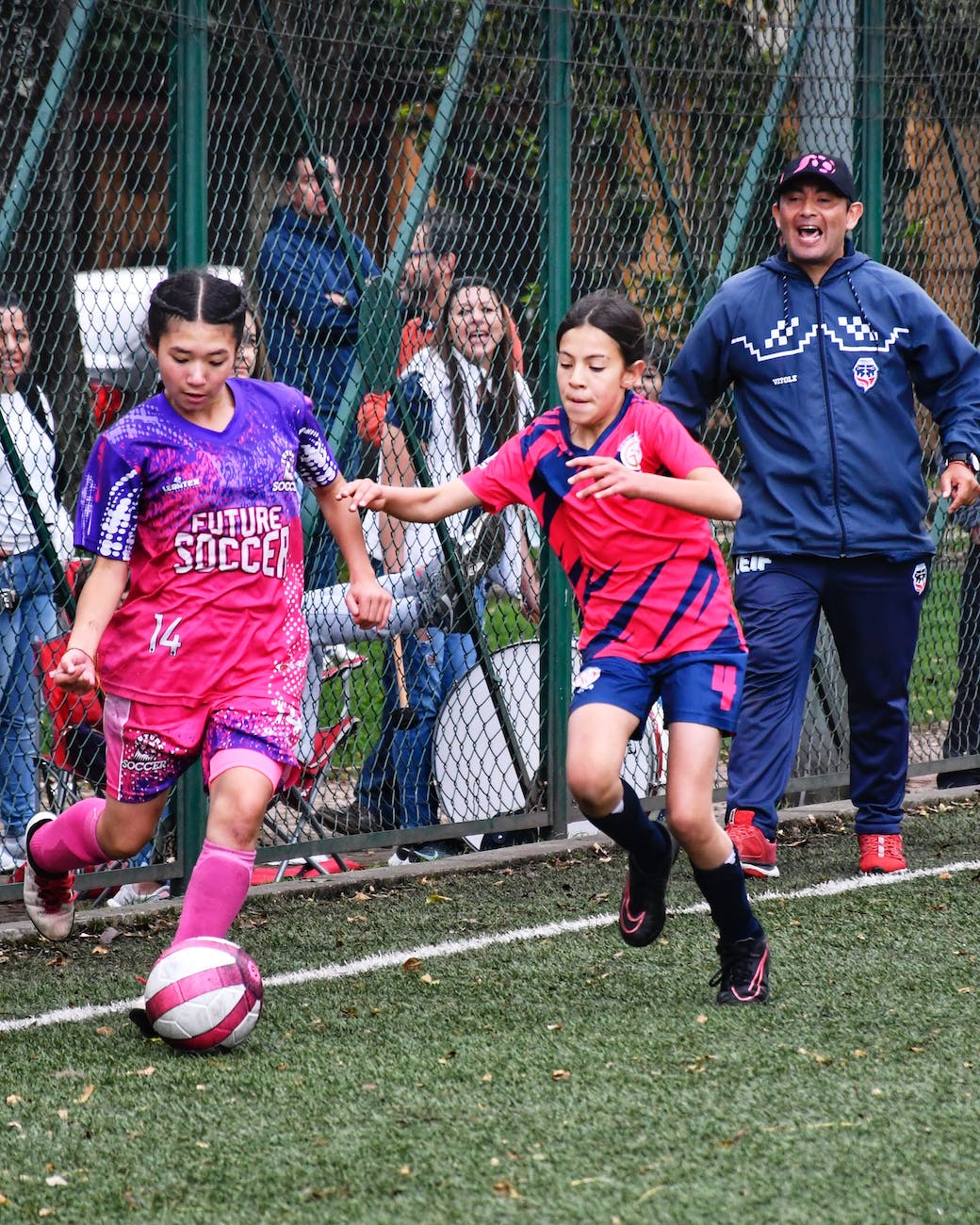Table of Contents
Introduction:
Decisions must be made in a split second in football. Every second spent on the field offers a fresh chance to choose an option of action that could affect the result of the match. The difference between good and great players is their ability to make quick and correct decisions. In this article, we’ll examine the decision-making process, decision-making elements, decision-improvement approaches, and the connection between team strategy and decision-making in football.

Factors Affecting Decision Making in Football:
Decision making is important in football since it can affect how a game turns out. The capacity of a player to take conscious and unconscious decisions on the field is influenced by various elements. The following are some of the most significant elements that influence football decision-making:
- Experience: Experienced players are more likely to make the right decisions on the field since they frequently have a greater comprehension of the game.
- Cognitive skills: Players’ capacity to comprehend information and make quick decisions can be influenced by cognitive abilities including perception, attention, and memory.
- Physical abilities: On the field, a player’s ability to make decisions can be impacted by physical traits including speed, agility, and coordination.
- Emotional state: Players who communicate well on the field can make better decisions.
- Communication: Communication among players is essential in football. Good communication can help players make better decisions on the pitch.
- Game situation: Different actions may be required of the players depending on the score, the remaining time in the game, and where the ball is on the field.
- Opponent’s strategy: Decision-making can also be impacted by the opponent’s approach to the game. Depending on the strategies and playing style of the opposition, players may need to modify their choices.
- Coaching: Coaches can provide advice on how to make better decisions on the field as well as assist players in improving their cognitive and physical abilities.
By understanding these factors, coaches and players can work to improve decision-making ability and, as a result, improve their overall performance on the pitch.

The Decision-Making Process in Football
Football decision-making is a complex and dynamic process that necessitates quick thinking and flexibility. To make the best choices on the field, players must pass through a number of stages.
Here are the different stages of the decision-making process in football:
- Perception: The first step in making a decision is perception. On the pitch, players must be aware of their surroundings, including the ball’s location, their teammates’ and opponents’ positions, as well as any open space.
- Analysis: The analysis comes next in the process. The players must assess the scenario and choose their course of action. This entails evaluating the possibilities at hand and taking their prospective results into account.
- Decision: Making decisions comes in third. Based on their evaluation of the circumstances, players must decide. This choice may be to pass, shoot, dribble, or perform another action.
- Execution: The process ends with the execution phase. Players must carry out their decisions precisely and accurately in order to succeed on the pitch.
Factors like experience, cognitive talents, physical prowess, and emotional state can influence one player’s decision-making ability and his on-field performance.
The following strategies can be used by players and coaches to enhance decision-making in football:
- Anticipation: Players can anticipate how the ball and other players will move, which helps speed up and improve the accuracy of their decisions.
- Visualization: Making better decisions in the moment can be facilitated by players’ use of visualization.
- Practice: Players’ decision-making skills can be enhanced and their self-assurance on the field can be raised with regular practice.
- Analysis: Players can discover areas for development and enhance their decision-making skills by reviewing game tape and talking with coaches and teammates about choices they made.
- Communication: By providing information regarding the state of the game, effective player communication can aid in better decision-making on the field.
Techniques for Improving Decision Making in Football
Football players must improve their decision-making skills if they are to perform to their best ability on the field. Even though some athletes are naturally good decision-makers, this skill can be developed through practice and instruction.
Here are some methods to sharpen your football decision-making skills:
- Practice decision making under pressure: One of the best ways to improve decision making in football is to practice making decisions in situations that simulate the pressure of a real match. This can include small sided games or drills that require players to make quick decisions under pressure.
- Analyze game footage: Analyze game film to assist players improve their decision-making. Coaches can use game footage to help players by evaluating their performance and pointing out areas for development. Analysis of decision-making during crucial game moments, such as when attacking or defending, might be part of this.
- Develop cognitive skills: Football decision-making demands significant cognitive abilities in the areas of observation, attention, and memory. Through training drills and exercises that emphasize cognitive development, coaches can assist players in developing these skills.
- Develop physical skills: Decision making in football can also be influenced by physical attributes like speed, agility, and balance. Through training drills and physical development-focused exercises, coaches can assist players in developing these skills.
- Improve communication: Making the proper decisions on the field depends on effective communication. By urging players to interact with their teammates more effectively during practices and games, coaches can aid players in developing their communication skills.
- Focus on situational awareness: In order to act appropriately on the field, players must always be aware of their surroundings. Players can increase their situational awareness by themselves by having a thorough grasp of the team’s general strategy and the game’s goals from their coaches.
- Encourage creativity: Football is a sport that promotes originality, and players who have greater imagination tend to make better decisions on the field. By giving them the chance to try out various plans and techniques, coaches can push players to be more inventive.
- Develop decision-making routines: Establish routines for decision-making: Last but not least, creating decision-making routines can aid players in making decisions quickly and successfully while playing. Players can practice making decisions in practice sessions and games by developing their own decision-making routines, which coaches can support.
Coaches can help players to improve their decision making by providing them with opportunities to practice decision making under pressure, analyzing game footage, and developing cognitive and physical skills.
Scanning and situational awareness should be trained form a very early age. The book “Scanning – How to train it and develop Game Awareness: See more, Think Quicker, Play Better” can provide many practical solutions, drills and sessions including many theoretical information.

Decision Making and Team Strategy
Any football team seeking success on the field must have the ability to make wise decisions. The choices made by a team throughout a game can have a significant impact in addition to the actions of individual players.
Formation is a crucial component of team strategy that affects decision-making. Players must adjust since different formations need various modes of decision-making. For instance, whereas a 4-3-3 configuration emphasizes rapid passing and creating play through the center, a 4-4-2 formation forces players to concentrate on spreading the ball wide and delivering crosses into the box.
Team strategy’s plan is also crucial. Decisions that players must make may be governed by the strategies used by their team. Players on a team that plays a high-pressing style, for instance, could need to make quick decisions while pressing the enemy, whilst players on a team that plays a possession-based style might need to make more deliberate decisions when trying to penetrate the defense of the opposition.
For example, in order to try and score a goal in a game if they are trailing, a side may need to take more chances and make more aggressive decisions. A team may need to focus more on maintaining possession and making wiser choices if they are winning, on the other side.
The ability of each player to make independent decisions is just as crucial as the team’s overarching strategy. Coaches can aid players in improving their decision-making abilities by using training exercises and games that replicate the conditions of actual games. This can assist players in recognizing and carrying out the best actions in various on-field circumstances.
The Importance of Mental Preparedness
Mental preparedness is another crucial factor in decision making in football. Players need to be in the right mindset to make quick and accurate decisions. Factors such as fatigue, stress, and pressure can impact decision making.
Practicing mental preparedness techniques such as visualization, positive self-talk, and relaxation exercises can help players stay focused and make the right decisions under pressure.
Conclusion
Making decisions is a crucial ability for football players to develop. The result of the game may be significantly impacted by an athlete’s capacity to make quick, informed decisions under pressure.
Players can enhance their decision-making and have a big impact on the field by comprehending the decision-making process, concentrating on simulation drills, learning from feedback, comprehending team strategy, and employing mental preparedness strategies.
Keep in mind that the best choice is the one that results in success, so continue honing your decision-making skills for those crucial moments.


